Matildas’ success changes Australia’s sporting landscape
After 120 minutes and a series of heart-stopping penalties, the sleeping giant is awake. Australia’s sporting landscape is changed forever. Those in the know say the big local codes should be worried.
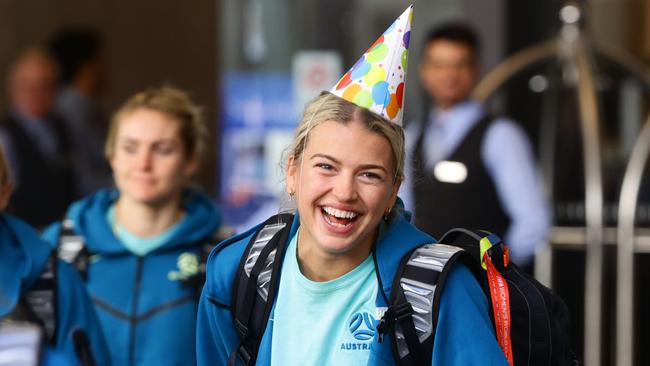
After 120 minutes and a series of heart-stopping penalties, the sleeping giant is awake.
Australia’s sporting landscape is changed forever.
More than four million Australians tuned in to watch the Matildas defeat France to qualify for the semi-finals of the World Cup – the biggest TV event in more than two decades. You can bet that number included the executives of rival football codes.
The AFL and NRL should both be concerned, say those who should know. The level of support the Matildas are garnering cannot be manufactured or replicated by Australia’s traditional winter sports. None can provide a World Cup stage of this magnitude.
At the MCG, traditional AFL clubs Carlton and Melbourne were duking it out but there were hundreds of supporters crowded around televisions to take in that final, brilliant penalty from Cortnee Vine. They were doing the same at Allianz Stadium before the Roosters and Dolphins NRL game, with supporters hovering over their phones.
Australians can love different sports simultaneously but some sports are loved more than others. Right now, the Matildas are sweeping the nation off its feet.
“In my many years of running rugby and three years’ running football, I was made abundantly aware that the only sport the AFL really feared was football,” former rugby and soccer boss John O’Neill says.
O’Neill, who ran the Football Federation of Australia and the Australian Rugby Union, says “the numbers don’t lie” – the sell-out games, the bumper TV viewing audiences – and the big local codes should be worried about this.
“The AFL and NRL, all the sporting codes, need to be reminded; this is a wake-up call, the sleeping giant is no longer asleep.
“In a competitive market place with four football codes, this is a moment in time when the appeal of football to men and women, boys and girls of any age, is on display,” O’Neill said.
“All credit to other footy codes for the investment of women’s sport; the transformation has been nothing short of amazing, but courtesy of the Matildas in terms of women’s profile of the sports, it puts them at the top of the pile.”
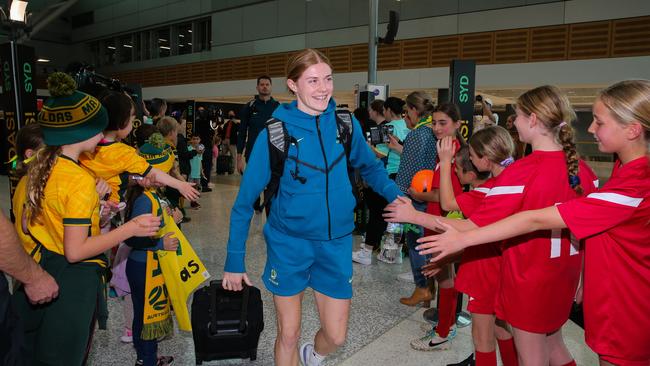
The numbers are compelling story. If you’re a parent of a promising young athlete, where would you direct your daughter?
In cricket, the minimum elite wage is a tick more than $100,000 a year. In the AFLW, it’s $40,000, while NRLW is $30,000 and A-League Women’s is $25,000.
But it’s overseas in codes like cricket and soccer that women have made some serious cash.
In cricket, the India’s Women’s Premier League has seen Australian cricketers such as Ash Gardner sign contracts of $500,000 for a few weeks’ work.
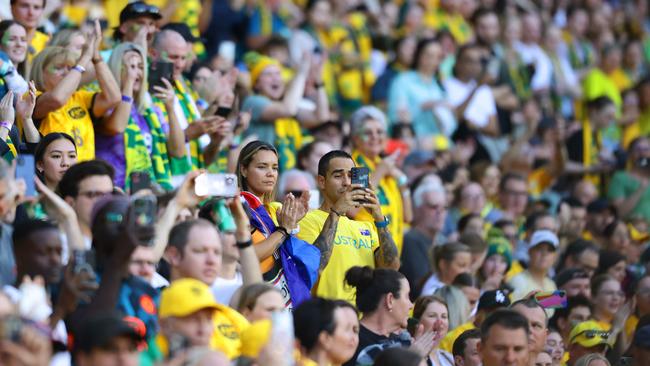
There is pay parity for both the Socceroos and Matildas but most of the Australian squad are on healthy contracts for overseas clubs. The likes of Sam Kerr and Ellie Carpenter are estimated to be earning well over $1m a year including endorsements.
Money talks, notes O’Neill.
“You look at the earning potential of a young girl in football in comparison to the AFLW and NRLW and it’s a no-brainer,” O’Neill said. “It’s confronting for other sports. It’s a truthful inescapable fact that football is the world game and it’s come to town to Australia for the first time and look at the response from the audience; TV ratings and tickets sales others can only dream of.
“The Matildas have captured more hearts and minds than anyone could have imagined.”
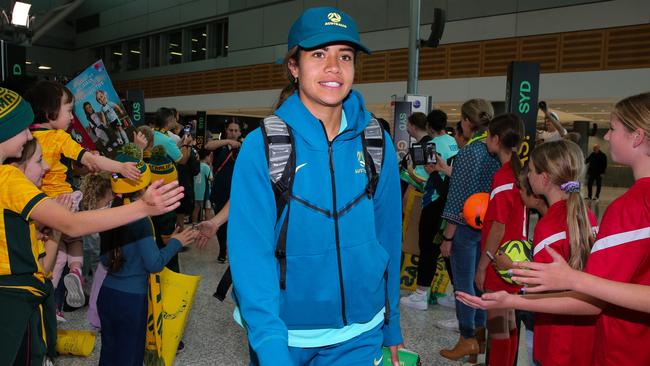
Most Australians knew Kerr’s name before the tournament, but now Caitlin Foord, Steph Catley, Hayley Raso, Mary Fowler, MacKenzie Arnold and the girl from “Shepp”, Cortnee Vine, are household names too.
The Matildas sit among the world’s elite teams – yet how much better would they be if their pathways had been funded properly?
It’s a code that deserves $500m in funding for its grassroots, as FA boss James Johnson is asking from the Albanese government. If the AFL can get $270m for a stadium in Tasmania, oughtn’t the Matildas get more than a public holiday in their honour?
Suncorp chair Christine McLoughlin, a co-founder of the Minerva Network, an organisation where some 300 leading Australian businesswomen mentor more than 500 professional Australian sportswomen, says this tournament has triggered a “tectonic shift”.
McLoughlin, whose organisation is designed to help support sportswomen with the “business” side of their life, said the Matildas’ semi-final advancement was enormous. She called on the business community to back more sportswomen.
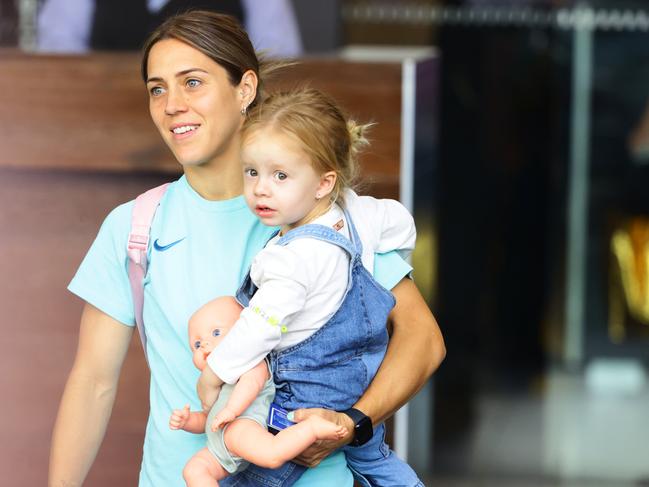
“There is a tectonic shift before our eyes showing the power of women’s sport,” she said. “The intersection of sport with soft diplomacy, business and communities has played out in spades in the lead-up to and over these last weeks of the FIFA 2023 Women’s World Cup.
“It’s time for us as a nation to get behind (the Matildas), off the field as well. Sam Kerr’s famous calf has put a global spotlight on the implications of injury.
“That’s why what we do at Minerva Network becomes so important: enabling our professional women athletes to thrive and soar off the field.”
McLoughlin, who is also a chancellor of Wollongong University and director of Cochlear, recalls a moment when she first crossed paths with Carpenter, then a teenager, at one of the first Minerva meetings.
“I remember a young 17-year-old Ellie Carpenter, then accompanied by her mother Belinda, was never shy to come forward,” she said. “Belinda’s words at that time: ‘Ellie has world class potential – we are trying to find the pathway to get her there.’ Ellie’s words: ‘I know I am great at football but I am about to turn 17 so can you help me get a car’.”
“I said; ‘No Ellie – we can’t get you a car – but we can find ways to help teach you how to market yourself and your potential on the football field in a way that will resonate with the corporate world – then you can maybe pitch to a few car companies who may decide to back you’. Four weeks later an email from Ellie; ‘Hyundai gave me a car; they think I am great’.”
She now drives a Porsche.






To join the conversation, please log in. Don't have an account? Register
Join the conversation, you are commenting as Logout